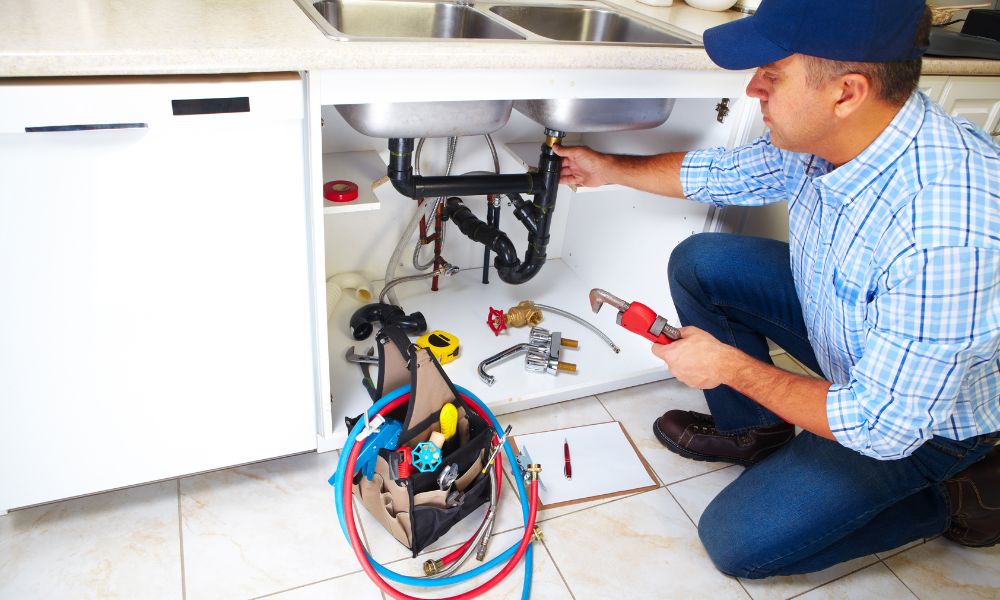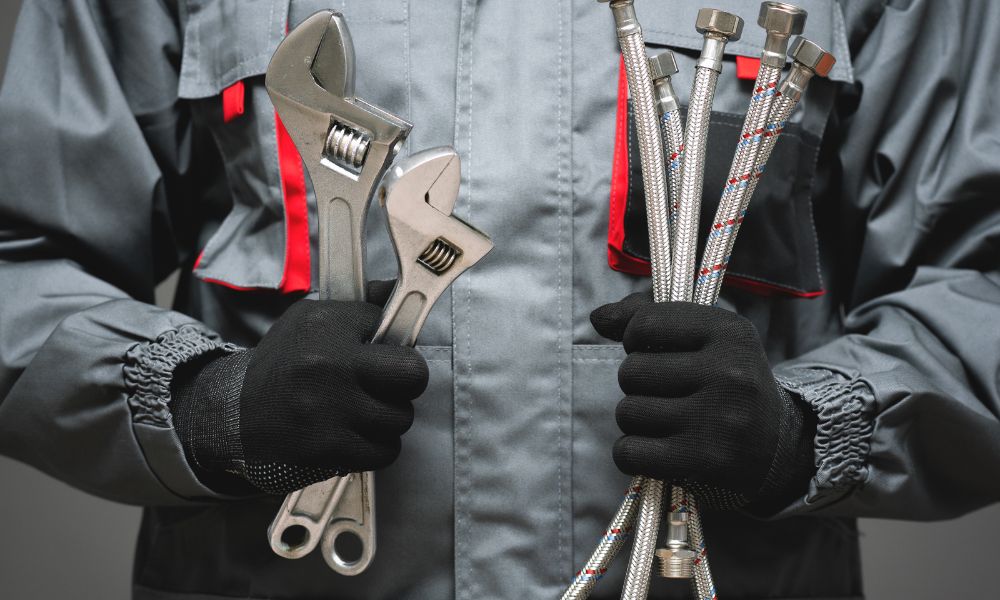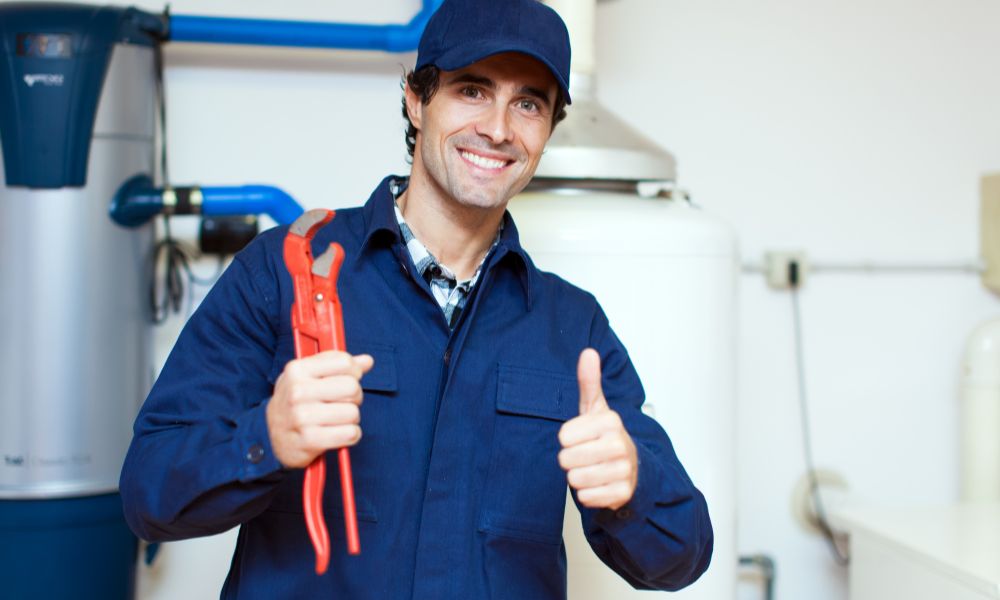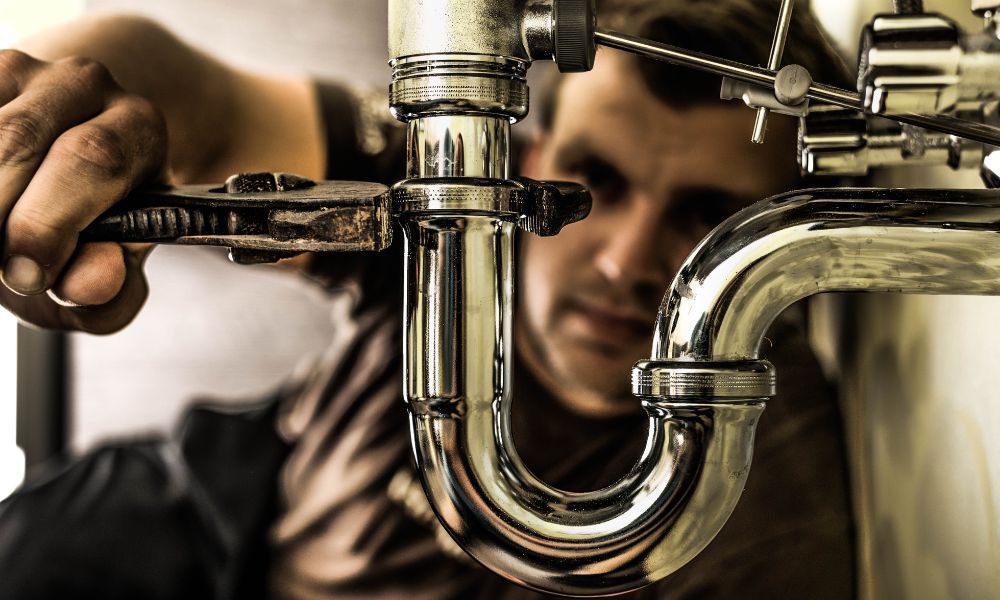Plumbing might appear complex and overwhelming, but understanding its basics can go a long way in managing your house. Here is a comprehensive guide that every homeowner should be aware of.
Understanding the Work of a Northern Virginia Plumber
Learn more with J.Hood Services:
https://www.jhoodservices.com/
The key to comprehending your home’s plumbing system lies in recognizing its two separate subsystems:
- A system that brings freshwater in
- A system that takes wastewater out
Fresh water is under pressure to enable it to reach all areas of your house, including upstairs or the backyard. This water enters your home through a series of pipes, which are regulated by valves. In contrast, the drainage or waste system uses gravity and vents to flow.
Exploring the Essentials of Plumbing in Northern Virginia
Several types of pipes are used for different purposes:
- PVC: Commonly used for cold and hot potable water and sewage applications.
- PIP: Used for irrigation.
- Copper: This is perhaps the most traditional material used for plumbing pipes.
- PEX: Increasingly popular due to its flexibility.
Knowledge about pipe materials helps you make informed decisions when repair or replacement becomes necessary.
Exploring Plumbing Companies in Northern Virginia
Low water pressure can result from various problems such as blockages in the pipes, valve issues, or even supply issues from the municipal corporation. High water pressure can cause damage to your appliances and should be maintained within acceptable limits using pressure reducing valves.
Exploring Plumbing Services in Northern Virginia
A trap is a shaped pipe that retains a small amount of water each time the fixtures are used. This water prevents sewer gases from entering into your home. Traps are present under sinks, bathtubs, and showers.
The Significance of Plumbing Contractors in Northern Virginia
Vents help waste water flow smoothly out of the house by allowing air into the drainpipes. If there’s no vent, or if it’s installed incorrectly, water locks can form that block the drain.
Handling Northern Virginia Plumbing Leaks
Leaks are common plumbing issues. They can occur due to various reasons such as corrosion, damage, loose connections, or high water pressure. Regular inspection and maintenance can prevent leaks. Read about Jimdosite – Plumbing Services in Northern Virginia as well.
The Relevance of Plumbing Codes
Plumbing codes have been established to ensure safety and uniformity. They address installation and specifications for plumbing systems. As a homeowner, you should be aware of these codes especially when planning any major renovations.
Understanding these basics can help homeowners recognize potential issues before they turn into major problems. While this guide covers the basics, it is important to rely on professional plumbers for complex tasks or when in doubt. Their expertise ensures that your home’s plumbing system stays in optimal condition.
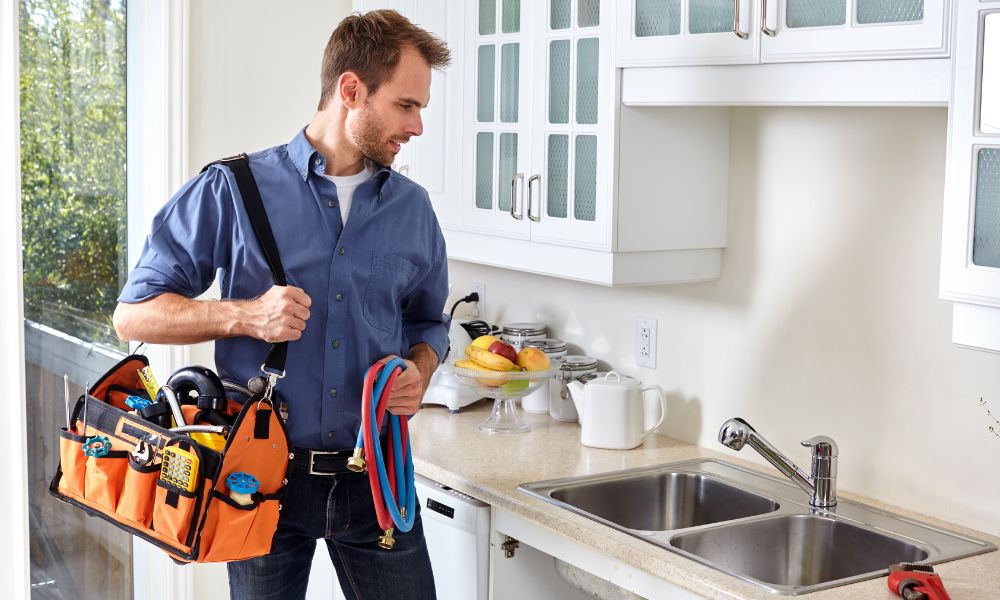
Understanding your home’s plumbing system is essential for every homeowner. It not only helps you in maintaining the system effectively, but it can also save you from expensive repairs in the future. This article aims to provide a detailed overview of your home’s plumbing system and what each part does.
The Basic Components of Home Plumbing Systems
There are two main subsystems in every home’s plumbing system:
- Water supply system: This brings fresh water into your house.
- Drainage system: This takes away wastewater from your house.
Both these systems work independently without overlapping, ensuring clean water intake and efficient disposal of waste water.
The Water Supply System
The water supply system is responsible for delivering fresh water to your homes. It operates under high pressure and includes the following components:
- Pipes: These are used to transport water from the main city supply or well to various outlets in your house.
- Valves: These are used to control the flow of water through the pipes.
- Faucets: These enable you to access water at different points, like sinks, showers, and bathtubs.
- Water heater: This heats up fresh water for use in showers, washing machines, and dishwashers.
The Drainage System
The drainage or wastewater system removes used water and waste from your house. It relies on gravity to function properly. Here are its key components:
- Drain pipes: These collect waste water from different parts of your home and transport it out.
- Trap S-bend: These are located below or within sinks, toilets etc., and prevent sewer gases from entering the home.
- Vent pipes: These allow sewer gases to escape outside, preventing any buildup of odor inside homes.
- Sewer line: This carries wastewater from drain pipes out of your property into the community sewer system or septic tank.
In addition to these, there are other components like shutoff valves, which allow you to turn off the water supply in case of a leak or for maintenance purposes.
Understanding your home’s plumbing system is crucial as it can help identify potential issues early, ensuring efficient functioning and minimizing the chances of expensive repairs. Being aware of the basic structure of your plumbing can also make it easier when you need to explain a problem to a professional plumber.
By keeping a keen eye on these vital components and their functionality, homeowners can ensure the longevity and performance of their home’s plumbing system. Regular checks and maintenance go a long way in preventing severe problems down the line.
To demystify the often complex topic of plumbing, it’s vital to start from ground zero – the foundation. Understanding your home’s plumbing system at its core will give you insight into its functionality, allowing you to identify potential issues and implement preventative measures effectively.
The foundation of your home’s plumbing system is comprised of two main subsystems: the water supply system and the drainage system.
The Water Supply System
The water supply system brings clean water into your home under pressure. It starts at the municipal supply or other freshwater source, runs through the meter that records your usage, divides into two lines – one delivering cold water directly to every fixture in your house and the other heading towards your water heater.
Key components in this subsystem include:
- Pipes: Pipes made out of copper, PVC, or PEX transport water throughout your home.
- Valves: Shutoff valves allow you to turn off the flow of water to individual fixtures without interrupting service elsewhere.
- Water Heater: This appliance heats a portion of incoming cold water for use in showers, washing machines, dishwashers and any other places where hot water is desired.
- Pressure Regulator: This component reduces incoming water pressure to a manageable level before it reaches any plumbing fixtures or appliances.
The Drainage System
The drainage system (also known as DWV: Drain-Waste-Vent) works entirely by gravity. It transports wastewater out of your house while vent pipes carry sewer gases safely outside without leaking into living spaces.
Key components in this subsystem include:
- Drain Pipes: These pipes carry wastewater away from sinks, tubs, showers and toilets.
- Vent Pipes: Vent pipes prevent sewer gases from seeping into your house and also help maintain proper atmospheric pressure in drain pipes for optimal function.
- Traps: Found beneath every drain, traps are curved pipe sections that hold a small amount of water to prevent sewer gases from entering your home.
- Sewer Line: This is the main waste line that carries wastewater and sewage out of your house to a municipal sewer system or septic tank.
The Intersection: Fixtures, Appliances, and Fittings
Fixtures such as sinks, toilets, and bathtubs form the intersection where these two systems meet. Each fixture possesses taps where clean water can enter and a drain where wastewater can exit. Appliances like washing machines and dishwashers also connect to both systems.
Plumbing fittings like elbows, tees, unions and others help to connect these pipes together in a way that allows water to reach each fixture and appliance throughout the house.
By developing an in-depth understanding of these core principles behind your home’s plumbing system, you will not only become more self-reliant but also be able to communicate effectively with professional plumbers when necessary. Effectively managing this essential part of your home begins with comprehending its foundation.
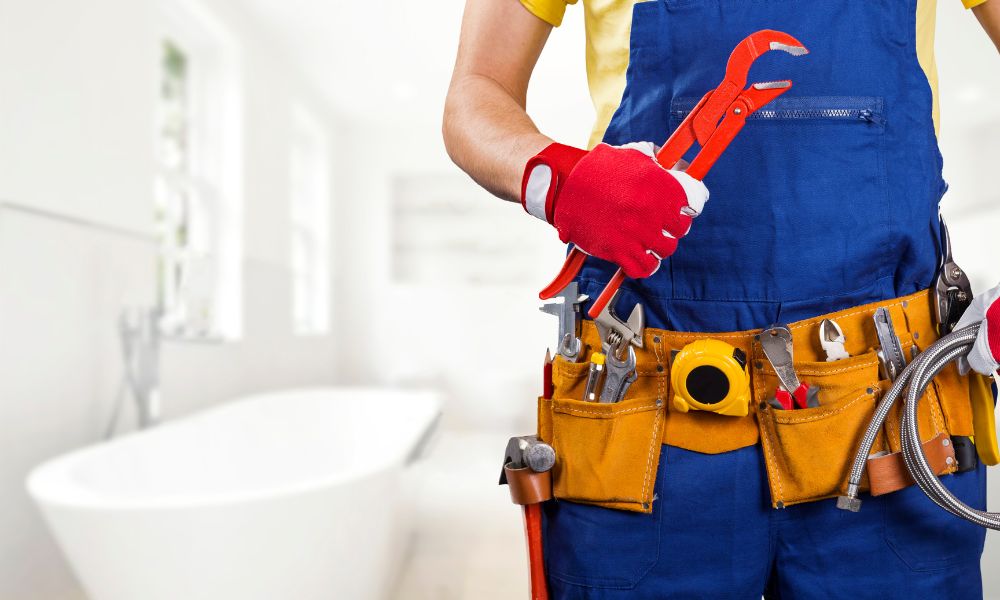
Proper maintenance of your home’s plumbing system can save you from unexpected and expensive repair costs. Regularly checking your plumbing system for any potential issues may help prevent significant damage. Here, we provide a series of steps to maintain your plumbing in optimal condition.
Regular Inspection
Carry out regular inspections for leaks or drips that could lead to more serious issues if left unattended. Check all visible pipes, faucets, toilets, showers, and appliances like dishwashers and washing machines. Look out for signs such as water spots or rust.
Seasonal Maintenance
Some parts of your plumbing system need seasonal care. For instance:
- Winter: To avoid freezing pipes that can burst, ensure they are adequately insulated.
- Spring: Check outdoor faucets for any damage caused by winter freezes.
- Summer: Check sprinkler systems for leaks or malfunctioning sprinkler heads.
- Autumn: Clean gutters and downspouts to prevent blockages.
Drain Cleaning
To maintain the functionality of your drains:
- Avoid disposing materials that are not water soluble down the drain like paper towels or cooking grease.
- Use a sink strainer to catch food particles and other debris.
- Clean drains regularly with natural solutions like vinegar and baking soda.
Regular Servicing
Professional plumbers should service certain parts of your system at least once a year:
- Water Heater: An annual service will prevent build-up of sediment which can reduce efficiency.
- Septic Tank: Pumping every three to five years prevents overflow.
- Whole System Inspection: A professional plumber can identify problems you might miss, such as corrosion or hidden leaks.
Pipe Insulation
Insulate all accessible pipes to protect them from freezing during cold months. It also helps hot water pipes retain heat, reducing energy costs.
Water Pressure
Regularly check the water pressure in your home. High water pressure can damage pipes, cause leaks, and wear out your appliances faster. You can use a pressure gauge to monitor this and if it’s consistently high, consider installing a pressure reducer.
Know Your Plumber
Establish a relationship with a trusted local plumber. They can provide valuable advice tailored to your home and will be familiar with your plumbing system in case of emergencies.
Preventive maintenance not only keeps the plumbing system working effectively but also extends its life. Taking these steps to maintain your plumbing will help ensure you avoid costly repairs and keep everything flowing smoothly.
Hiring a Plumber in Northern Virginia: An Essential Guide
Plumbing problems are a common occurrence in every home. It is, therefore, essential to equip yourself with effective strategies for troubleshooting these issues. This guide will walk you through solutions to some of the most commonly encountered plumbing problems.
Leaky Faucets
The constant drip of a leaky faucet is not just irritating; it can also lead to higher water bills. Here is an easy approach to solve this problem:
- Check the type of faucet you have: ball, cartridge, or ceramic disk.
- Once identified, you can purchase a repair kit from your local hardware store.
- Follow the instructions in the repair kit carefully. In most cases, you will have to replace a washer or seal.
Low Water Pressure
Low water pressure can turn even simple tasks like washing dishes into time-consuming chores. Follow these steps to troubleshoot:
- Clean your aerator: Unscrew it from the faucet and use a toothbrush to remove any mineral deposits that could be causing the low pressure.
- If cleaning doesn’t work, consider replacing the aerator.
Running Toilet
A running toilet can waste up to 200 gallons of water per day. Use these strategies if your toilet runs continuously:
- Replace the flapper: A worn-out flapper could be allowing water into your bowl continuously. Replace it with a new one and see if it solves the problem.
- Adjust the float height: Sometimes, all you need to do is adjust the float height in your toilet tank.
Clogged Drains
Clogged drains are among the most common plumbing issues homeowners face. Here’s how you can deal with them:
- Use a plunger: A good old-fashioned plunger can often dislodge whatever is clogging your drain.
- Snake or hand auger: If plunging doesn’t work, try using a drain snake or hand auger.
Leaky Pipes
Leaky pipes can lead to water damage in your home. Here’s a quick fix:
- Use a pipe clamp or leak tape: Both are temporary solutions, but they can hold the leak at bay until a professional arrives.
- Replace the pipe: If you’re confident in your DIY skills, consider replacing the pipe yourself.
Remember that while these tips are useful for minor issues, more serious plumbing problems may require professional attention. Don’t hesitate to call a plumber when necessary. It’s better to pay for expert help than risk causing further damage by trying to fix something beyond your capability.
- A Comprehensive Guide to Plumbers in Northern Virginia
- Discovering Top Plumbers in Northern Virginia for Consistent Plumbing Check-ups
- The Essential Role of Plumbers in Northern Virginia for Regular Home Safety Checks
- Finding the Best Plumbers in Northern Virginia: A Comprehensive Guide
- Comprehensive Guide to Plumbers in Northern Virginia Every Homeowner Should Be Aware Of

